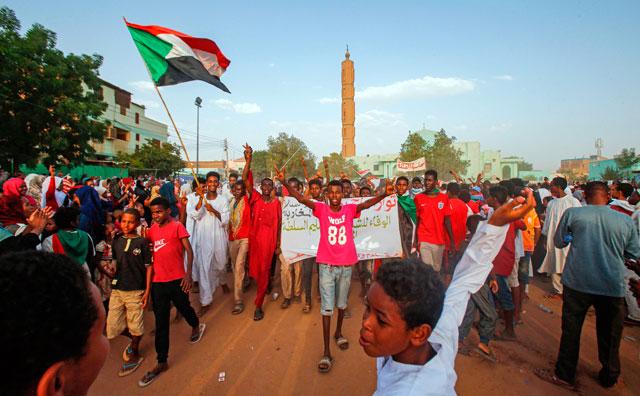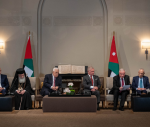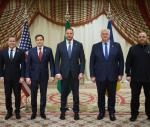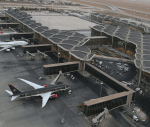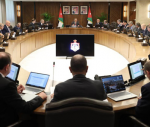You are here
Sudan protesters agree to direct talks with ruling generals
Jul 04,2019 - Last updated at Jul 04,2019
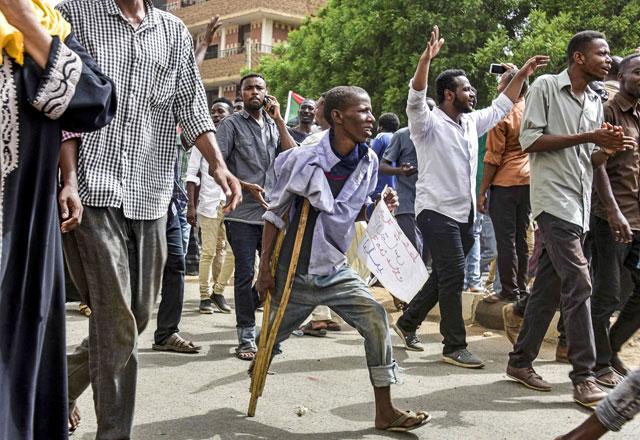
A Sudanese protester walks with a crutch joins others in a march during a mass demonstration against the country's ruling generals in the capital Khartoum's twin city of Omdurman on June 30 (AFP photo)
KHARTOUM — Sudan's protest leaders Wednesday agreed to hold direct talks with the country's ruling generals after African Union and Ethiopian mediators called on the two sides to resume stalled negotiations to form a new governing body.
Negotiations between the two sides collapsed in May over the make-up of the governing body and who should lead it — a civilian or a soldier.
Tensions further soared after a brutal crackdown on a longstanding protest camp in Khartoum killed dozens of demonstrators exactly a month ago.
The mediators have now come up with a compromise to resolve the overall crisis that has rocked Sudan for months, following the military ouster of longtime leader Omar Al Bashir in April amid widespread protests against his rule.
On Tuesday the mediators called on the generals and protest leaders to resume talks on Wednesday.
“The Alliance for Freedom and Change met and decided to accept the invitation for direct negotiations” with the generals, prominent protest leader Madani Abbas Madani told reporters on Wednesday, adding one of the conditions for the talks was to reach a decision “within 72 hours”.
The ruling military council that seized power after the army’s ouster of Bashir has still not responded to the plea for talks by the mediators.
But state television said that General Abdel Fattah Al Burhan, chief of the military council, ordered the immediate release from jail of 235 members of the Sudan Liberation Army, a rebel group fighting government forces in war-torn Darfur, which is part of the protest movement.
Test of mobilisation
The blueprint drafted by the mediators calls for a civilian-majority governing body.
Protest leaders have exerted pressure on the generals since the June 3 raid, by men in military fatigues, on the protest camp outside army headquarters in Khartoum.
The ruling military council insists it did not order the violent dispersal of the sit-in.
At least 136 people have been killed across the country since the raid, including more than 100 on June 3, according to doctors close to the umbrella protest movement, the Alliance for Freedom and Change.
The health ministry says 78 people have died nationwide during the same period.
On Sunday, in what was the first mass protest against the generals since the raid, tens of thousands of demonstrators took to the streets demanding civilian rule.
The mass protest had been seen as a test for the protest leaders’ ability to mobilise the crowds after the generals imposed a widespread Internet blackout and deployed security forces in the capital’s key squares and districts, its twin city Omdurman and other towns and villages.
On Monday, protest leaders upped the pressure on the generals by calling for a similar mass protest on July 13, to be followed by a nationwide civil disobedience campaign a day later.
The civil disobedience campaign, if observed, would be the second such agitation since the June 3 raid.
The first, held between June 9 and 11, paralysed the country, hitting an already dilapidated economy hard.
Protest leaders have been supported by Western nations in their call for civilian rule, while the generals appear to have backing of Arab allies like Saudi Arabia, the United Arab Emirates and Egypt, experts say.
Related Articles
KHARTOUM — Sudan's protest movement on Saturday said it has cancelled a nationwide day of civil disobedience that was planned for later this
KHARTOUM — Talks between Sudan's ruling generals and protest leaders, held after weeks of standoff following a deadly crackdown on protester
KHARTOUM — Sudanese protest leaders said Saturday that an Ethiopian envoy mediating with the ruling generals has proposed forming a civilian


